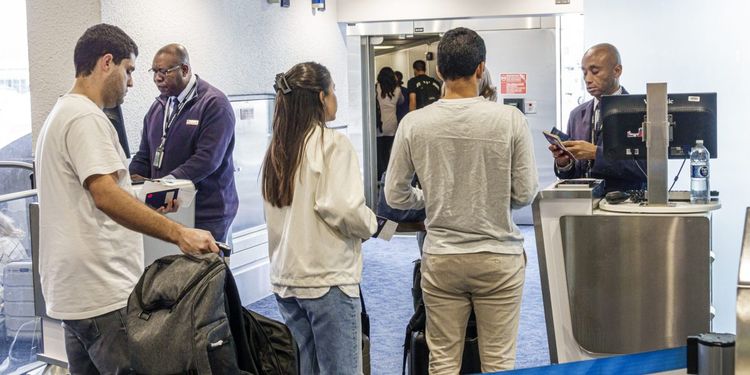American Airlines is testing a new system to humiliate 'gate lice,' the ...

For decades, scientists have tried to decipher why exactly humans cut lines. Is it a false sense of urgency? An innate desire to be first?
Whatever the reason, American Airlines wants you to cut it out. The airline is testing new technology to alert passengers and gate agents when someone tries to board before their seating group is called. The system will produce an “audible signal” when a passenger tries to board the plane before their seating group is announced, according to the airline. At that point, an alerted gate agent would send the passenger back to their appropriate group.
“The new technology is designed to ensure customers receive the benefits of priority boarding with ease and helps improve the boarding experience by providing greater visibility into boarding progress for our team,” American Airlines told Fortune in a statement.
The new tech is being tested in Albuquerque International Sunport in New Mexico, Arizona’s Tucson International Airport, and Virginia’s Ronald Reagan Washington National Airport.
“Gate lice” have long been a pet peeve of flight attendants who consider the premature gate-swarming behavior to be disruptive and rude.
“Just stay as out of the way as possible of the boarding area until your group is at least close to being called,” Rich Henderson, a flight attendant of 10 years and co-creator of the Two Guys on a Plane blog, told Business Insider. “If our frequent fliers and top-tier people aren’t even close to getting on the plane and your crew isn’t even close to getting on the plane, you really have no business standing right at the gate.”
Gate lices’ itchy originsLet’s be honest, who among us hasn’t tried to slip into Group 5’s boarding line, even though a lowly “9” is stamped on our boarding pass? The problem of gate lice, after all, emerged from a practical problem, according to Ben Mutzabaugh, managing editor of aviation content for travel blog The Points Guy. In the late 2000s, following airlines’ push to raise checked-bag fees, more passengers are likely to bring carry-on bags they hope to stow away, all while looking forward to skipping the dreaded baggage claim. With more carry-ons, overhead storage has become more in-demand. No one wants to be that first passenger having to gate-check a bag.
“Once that started to become the new normal, and people understood that as the reality, it did create a lot of anxiousness among players to try to get on the plane early,” he told Fortune.
All that pent-up airline anxiety could escalate into an aviation nightmare. The Federal Aviation Administration has referred 43 unruly passengers to the FBI this year alone, with the regulatory body passing along 310 of the most serious cases—which can involve assaulting a flight attendant or passenger—to the FBI since 2021.
The risk of encountering belligerent or at least curmudgeonly travelers is one reason why enlisting a machine to call out or humiliate sneaky passengers is a wise strategy, Mutzabaugh said, as it saves gate agents the miserable job of confronting passengers.
“You can be mad at the machine, but that’s probably better than being bad at the gate agent,” he said.
Anecdotally, Mutzabaugh has heard that compared to other airlines, American is generally more organized with boarding compared to competitors, though some airports are notoriously chaotic. Rules and systems to quiet the chaos come every few years, he said, and the perfect boarding method remains elusive. But with American Airlines saying it’s been happy with the new system’s initial results, there’s no reason why other airlines shouldn’t follow American’s lead, Mutzabaugh argued.
“A little order goes a long way these days,” he said.









































